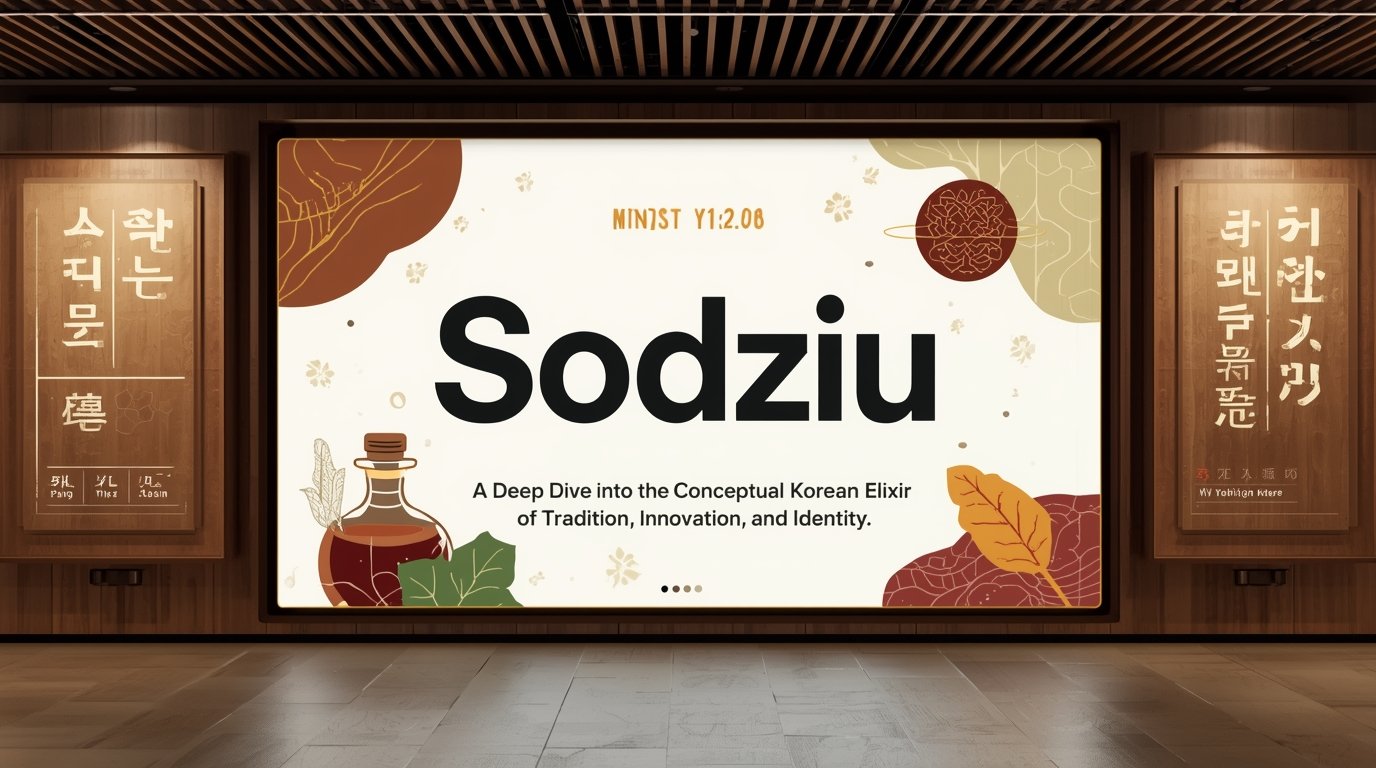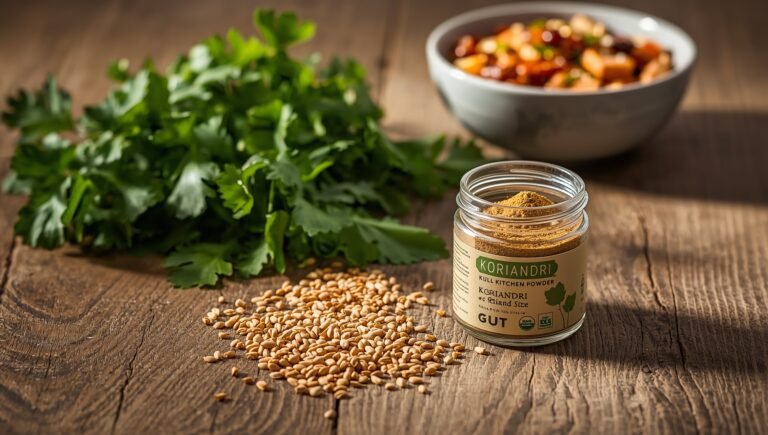Sodziu: A Deep Dive into the Conceptual Korean Elixir of Tradition, Innovation, and Identity
Introduction
If you think you’ve tried every beverage out there… meet Sodziu.
In a world brimming with fizzy sodas, carbonated tonics, and trending hard seltzers, Sodziu enters the scene as a conceptual drink that blends ancient wisdom with modern curiosity. While the term “Sodziu” does not yet exist in Korean tradition, its speculative existence allows us to explore the realms of fermentation culture, rural heritage, artisanal innovation, and health-forward drink experiences.
This article invites you into a fully imagined world where Sodziu is a refined Korean beverage: clear, subtle, and steeped in symbolism. By analyzing how such a drink could be made, marketed, consumed, and interpreted, we also reflect on the roles of community, authenticity, sustainability, and global appeal. Whether you’re a fermentation enthusiast, a lover of Korean culture, or a beverage entrepreneur, Sodziu offers a meaningful exploration of what happens when tradition meets imagination.
What Does “Sodziu” Mean?
Though fictional, the term Sodziu evokes multiple layers of symbolism.
Etymology and Constructed Meaning
Derived from “so” (possibly referencing soju or purity) and “dziu” (evoking “liquor” or “spirit” in Slavic and Baltic roots), Sodziu could be loosely interpreted as “pure rural spirit.” This name symbolizes clarity, simplicity, and a connection to the land — themes central to both traditional Korean life and contemporary wellness movements.
Symbolic Identity
-
Purity: Crystal-clear appearance and minimal ingredients.
-
Tradition: Rooted in old-world fermentation methods.
-
Rural Roots: Made from locally sourced rice, reflecting terroir and seasonality.
Distinction from Other Korean Drinks
| Drink | Type | Characteristics |
|---|---|---|
| Soju | Distilled | Strong, neutral, commercialized |
| Makgeolli | Fermented | Milky, tangy, unfiltered |
| Cheongju | Filtered rice wine | Clear, light, celebratory |
| Sodziu (concept) | Lightly fermented or micro-distilled | Clear, clean, probiotic potential |
Ingredients and Raw Materials
The beauty of Sodziu lies in its simplicity and purity, starting with just a few core components.
1. Base Grain: Glutinous or Sweet Rice
-
Why rice? Rice is a staple of Korean agriculture and cuisine. Glutinous rice offers a creamy mouthfeel and smooth finish.
-
Alternative grains: Sorghum, barley, or millet could be used for regional adaptations.
2. Fermentation Starter: Nuruk
-
Nuruk is a traditional Korean starter made from wheat or barley, rich in wild yeasts and enzymes.
-
It breaks down rice starch into sugars and ferments it into alcohol and acids.
-
Alternative: Modern cultures or kombucha-style SCOBYs for novel versions.
3. Water Quality
-
Clean, mineral-balanced spring water affects taste, microbial development, and clarity.
-
Traditional producers may boast their local water source as a key flavor element.
4. Optional Additives
-
Mild botanicals: Korean pear, ginger, omija berries, pine needles.
-
Flavor variants (inspired by seasons or regions) could elevate Sodziu’s craft appeal.
The Brewing and Fermentation Process
Creating Sodziu involves precision, patience, and passion. Below is a detailed overview of the process.
1: Preparing the Grain
-
Soaking: Glutinous rice is soaked in water for 6–12 hours.
-
Steaming: The softened rice is steamed until translucent.
-
Cooling: Steamed rice is cooled to body temperature.
Step 2: Mixing with Nuruk
-
Nuruk is crumbled and mixed with the cooled rice.
-
This activates fermentation: enzymes convert starch to sugar; yeasts convert sugar to alcohol.
Step 3: Fermentation
-
Duration: 7–30 days depending on style (light vs. robust).
-
Temperature: 15–25°C for optimal microbial activity.
-
Vessels: Clay jars (onggi), wood barrels, or stainless tanks.
-
Regular stirring prevents mold growth and ensures even fermentation.
Optional Step 4: Distillation
-
If higher alcohol content is desired, the fermented mash can be distilled.
-
Cut points during distillation (heads, hearts, tails) determine purity and taste.
Step 5: Filtration & Bottling
-
Fine mesh or charcoal filtration removes solids.
-
Bottled at different strengths: 6% (light), 12% (medium), 20% (distilled style).
The Role of Farmers and Communities
Sodziu is more than a beverage — it’s a symbol of a community’s identity.
Farmers
-
Provide heirloom rice varieties.
-
Commit to organic or regenerative agriculture practices.
-
Preserve local biodiversity and terroir.
Producers
-
Small-batch artisans may work in cooperative models.
-
Craftsmanship is emphasized over mass production.
Community Value
-
Seasonal festivals celebrating the brewing of Sodziu.
-
Elder knowledge passed down to younger brewers.
Serving, Pairing, and Cultural Uses
How to Serve Sodziu
-
Temperature: Best served chilled or at cellar temperature.
-
Glassware: Use traditional Korean pottery or modern minimalist glass.
-
Occasions: Evening sips, family gatherings, wellness retreats.
Food Pairings
-
Light dishes: grilled fish, tofu, steamed dumplings.
-
Korean classics: bibimbap, bulgogi, kimchi pancakes.
-
Western fusion: ceviche, arugula salad, goat cheese tartines.
Cocktail Innovations
-
Sodziu Mule (with ginger beer).
-
Citrus Sodziu Spritz (with yuzu and soda).
-
Sodziu Mojito (with mint and lime).
Health Benefits and Risks
Potential Health Benefits
| Benefit | Source |
|---|---|
| Probiotic content (if unfiltered) | Fermentation |
| B-vitamins & minerals | Rice & nuruk |
| Mild alcohol content | Naturally low ABV |
| Antioxidants (in botanical versions) | Herbal additives |
Health Risks and Concerns
-
Alcohol still poses risks: intoxication, liver stress, dependency.
-
Allergens: wheat in nuruk, rice sensitivity.
-
Sanitation: Improper fermentation can lead to harmful microbes.
Conclusion:
Moderation, clean brewing practices, and transparency are critical to healthful consumption.
Purity, Branding, and Authentication
Defining “Pure” Sodziu
-
No artificial sweeteners.
-
No synthetic flavorings.
-
Minimal processing, no preservatives.
Branded vs. Pure
| Feature | Branded Version | Pure / Artisanal Sodziu |
|---|---|---|
| Shelf-life | Extended with preservatives | Shorter, fresher |
| Flavor | Standardized | Nuanced, batch-specific |
| Price | Lower | Premium |
How to Recognize Authentic Sodziu
-
Transparent labeling.
-
Local sourcing details.
-
Certifications: microbial safety, organic status.
-
Taste: should be clean, slightly fruity, no off-odors.
Price, Demand, and Market Potential
Pricing Factors
-
Ingredient quality.
-
Scale of production (handcrafted = higher price).
-
Import/export costs.
Market Trends in the UK & USA
-
Rising demand for:
-
Fermented beverages (kombucha, kefir).
-
Korean imports (thanks to Hallyu / Korean Wave).
-
Low-ABV alternatives.
-
Challenges
-
Regulatory hurdles for alcohol import.
-
Educating consumers about Sodziu.
-
Positioning against established drinks (soju, sake, kombucha).
Effects on Different Age Groups

Children and Minors
-
Alcohol is not suitable for individuals under legal drinking age.
-
May be inspired to try non-alcoholic versions using similar fermentation.
Elderly Consumers
-
Potential for enjoyment in moderation.
-
May interact with medications or preexisting conditions.
-
Prefer lower ABV versions.
Young Adults / Adults
-
Social drink: mild enough for gatherings, health-conscious enough for wellness communities.
-
Creative flexibility in mixology.
Conclusion: Why “Sodziu” Matters
Though Sodziu is a conceptual drink, its creation opens a larger dialogue: How do traditional practices inform modern health and wellness? Can fermentation be reimagined through storytelling and cultural pride? What role do community, sustainability, and authenticity play in the drinks we choose?
General FAQs about “Sodžius”
❓ What does “Sodžius” mean?
Sodžius is a Lithuanian word that translates to “village” or “rural homestead.” It evokes a traditional way of life rooted in agriculture, community, and cultural heritage. It symbolizes a connection to land, nature, and ancestral values.
🍶 Sodžiu Gerimas (Sodžius Drink)
❓ What is Sodžiu gerimas?
There is no officially recognized beverage called Sodžiu in Lithuanian or Korean tradition. However, the phrase may refer to a conceptual or locally crafted fermented drink, potentially inspired by rural traditions — think along the lines of homemade mead, beer, or herbal infusions.
❓ Where can I buy Sodžiu drink?
If referring to a conceptual or traditional Lithuanian drink, check:
-
Local farmers’ markets
-
Sodybos (homesteads) offering craft beverages
-
Specialty Lithuanian stores or online shops
-
Artisan distilleries or breweries
Search terms: “Sodžiu pirkti” or “kaimo gėrimai”
🏡 Sodžius Locations & Places
❓ What is Sodžius Šiauliai?
A location or rural homestead near Šiauliai, Lithuania. It could be a guesthouse, farmstay, or countryside retreat. Often used as a destination for rural tourism.
❓ What is Sodžius Kazlų Rūda?
Likely a guesthouse or countryside estate near Kazlų Rūda, offering accommodation, food, events, or cultural experiences tied to Lithuanian rural traditions.
❓ Where is Sodžius Plungė?
Refers to a homestead or rural accommodation near Plungė, a city in northwestern Lithuania. Could be used for private events, weddings, or agrotourism.
🥘 Sodžius Menu & Food
❓ What is Sodžius meniu?
It refers to the menu of a restaurant or guesthouse named “Sodžius.” Expect traditional Lithuanian dishes, such as:
-
Šaltibarščiai (cold beet soup)
-
Cepelinai (potato dumplings)
-
Kepta duona (fried bread)
-
Herbal teas, honey wine, or homemade drinks
❓ What is Sodžius pyragas?
It likely refers to a traditional cake or pie served at a place named “Sodžius.” Could be:
-
Apple pie (obuolių pyragas)
-
Cheese cake (varškės pyragas)
-
Honey cake (medaus tortas)
☕ Sodžius Café and Event Spaces
❓ What is Sodžius kavinė?
This means “Sodžius café” — a rustic-style café possibly located in a village or on the outskirts of a city, offering traditional Lithuanian drinks and food.
❓ What is Sodžius sodyba?
A Sodyba is a countryside homestead or estate — often used for:
-
Weddings
-
Retreats
-
Cultural events
-
Vacation stays
“Sodžius sodyba” likely offers rural lodging and local food experiences.
💰 Pricing & Availability
❓ What is the price of Sodžius (Sodžiu kaina)?
The price depends on the context:
-
If referring to accommodation, it could range from €30–€100 per night
-
If referring to craft beverages, a bottle may range from €5–€20
-
For event hosting, full-day rentals can cost €300–€1000+
❓ Where can I buy (pirkti) Sodžius?
You can find:
-
Listings on Lithuanian booking platforms (like Sodybos.lt)
-
Local farmer’s markets or shops for drinks/food products
-
Tourist info centers in Šiauliai, Kazlų Rūda, or Plungė
📖 Linguistic and Cultural Definitions
❓ What is the definition of Sodžiu?
“Sodžiu” is a dialectal or case form of “Sodžius,” meaning “village” or “countryside settlement.” It can also imply:
-
Traditional lifestyle
-
Community-based living
-
Agricultural roots
❓ What is the cultural meaning of Sodžius?
In Lithuanian heritage, Sodžius reflects:
-
Simplicity and harmony with nature
-
Multigenerational living
-
Folklore, craft, and seasonal traditions
-
Hospitality and slow living
📦 Special Mentions
❓ What is Sodžius 4?
This could refer to a location, room number, unit, or versioning (e.g., a fourth building or suite in a property). Needs context for precision.




